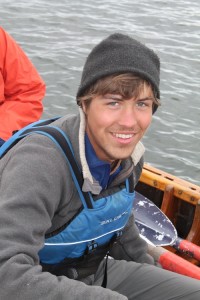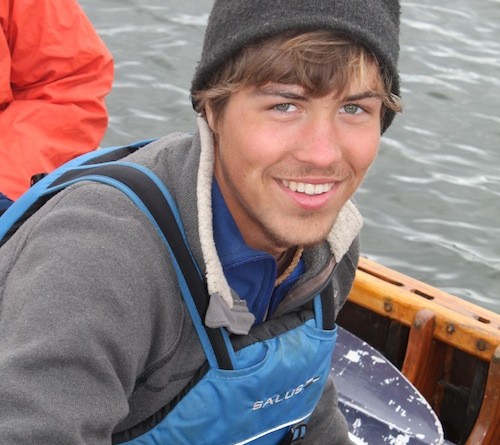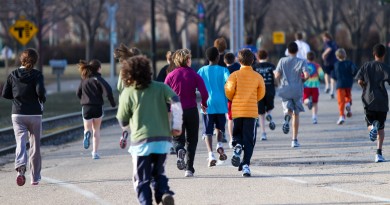18 & Under | Survival as a Passing Grade
After the holidays when most high schoolers were starting to study for midterm exams, 10 students were preparing for an adventure of a lifetime. The Vermont Kroka semester program is a six-month expedition covering 600 miles on skis, in canoes, and by bicycle. The journey begins in Marlow, New Hampshire, where the students and teachers work together to prepare for the expedition by dehydrating meat and vegetables, and learning backcountry ski techniques, nutrition, and navigation skills.
Then, from southern Vermont, the group skied north along the Catamount Trail, 300 miles to the Northwoods Stewardship Center just south of the Canadian border. Racing the springtime thaw, the Kroka students carried their equipment on their backs and slept in tents they sewed themselves at base camp.

Noah Begin, a senior at a private school in Maine, reflected on his experience so far during the spring semester. “It’s a very real experience. As far as doing outdoor trips, you aren’t often as involved in the planning. We all have different jobs. If we need more food, we’ll e-mail base camp with exactly how much food we need. We plan every aspect of the trip. We have a navigator, with topographical maps, who will plan every day. I’m in charge of all of the food for the expedition. We ate a lot of grains, beans, lentils, rice—a lot of lightweight things that don’t go bad. Someone else is in charge of all the gear, helmets, and canoes—things like that.”
During the expedition, the students also eat whatever they can scavenge because it means less food they have to carry. “We actually got a coyote from a hunter and that fed us for a few days,” Noah said as he showed me his coyote-tooth necklace that he made on the trail. “We ate a couple roadkill deer. We even had the game warden come for dinner,” Noah recalled. “We slaughtered a couple roosters up here (at the Northwoods Stewardship Center), which was a good experience. It was the first time I had slaughtered an animal. You hold it and kind of calm it down, and then slit its throat.”
Living in the wilderness can sometimes prove to be dangerous, as Noah discovered. “I fell through the ice the other day. At the end of the lake, we had to portage across an ice patch. I was stepping out of the canoe and my leg went right through the ice, and I sat on the gunwale and the boat flipped. Someone else had to come up and do a T-rescue (a maneuver to right a capsized canoe without bringing it to shore) on the boat. Misha, the program leader said, ‘Grab a boat and run.’” That was so Noah did not get hypothermic.
In March, the students did fire solos in small groups. “We went out with just a hatchet, a saw, matches, and a sweater—no jacket—and we had to spend the night. We built a shelter with sticks and put boughs all over it. We had a 3- or 4-foot-length fire that ran down the side of us. We’d cut long poles of dry wood and we’d just drag them in as they burned. We got it all set up and fell asleep, but we woke up two hours later, just freezing and our fire had died.” Eventually, Noah figured out how to stoke the fire every hour or two and even managed to get a few hours of sleep.
Although spring has arrived, the Kroka students are only half finished with their journey. From the Northwoods Stewardship Center in East Charleston, the group will canoe north along the Clyde River into Canada and eventually to Lake Champlain. After rowing south along Lake Champlain, the students will ride their bikes across the state to their starting point and base camp in Malow, New Hampshire.
Reflecting on his decision to do a Kroka semester, Noah would strongly recommend the program. “I was nervous about giving up normal life and being able to control my own schedule, but once I got here, I’ve enjoyed it a lot. We’ve all become really close. It’s been cool to actually watch the seasons change. It’s a really good experience.”


